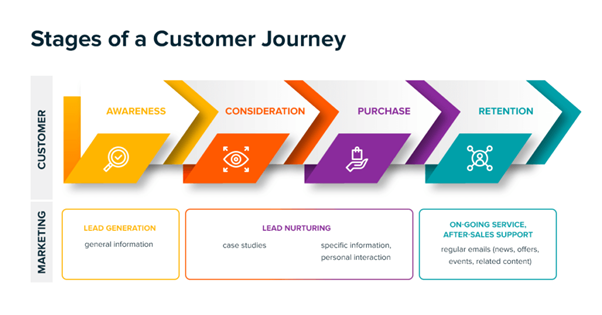The way customers interact with brands has undergone a dramatic shift. Gone are the days when a single email blast or ad campaign could capture lasting attention. Today’s audiences expect connected experiences that seamlessly move across email, social media, the web, and even offline touchpoints. For marketers, this means embracing automation that unifies every channel and delivers consistent, personalized engagement.
Modern marketing success relies on meeting customers wherever they are — through content that feels relevant, timely, and contextual. To achieve this, organizations need systems that combine data, automation, and analytics into one cohesive strategy. Marketing automation Dynamics capabilities within Microsoft’s ecosystem redefine how campaigns are built, executed, and optimized.
By leveraging intelligent automation, Dynamics 365 allows teams to design and orchestrate campaigns across multiple channels without duplication or data silos. Marketers gain the ability to manage customer journeys from a single interface — turning what used to be disconnected outreach into unified, outcome-driven engagement.
Why Multi-Channel Marketing Matters
Customer journeys today rarely follow a straight path. A potential buyer might see an ad on LinkedIn, sign up for a webinar, receive an email follow-up, and engage with a sales representative — all within days. Each of these touchpoints contributes to shaping perception and intent.
Multi-channel marketing recognizes this complexity by allowing brands to maintain continuity across all interactions. Rather than treating each campaign as a standalone effort, automation brings cohesion — ensuring that every message, regardless of platform, reflects a single brand voice and purpose.
When done right, this approach not only improves engagement rates but also provides valuable insight into customer behavior, helping businesses refine strategies in real time.
How Dynamics 365 Powers Multi-Channel Automation
Microsoft Dynamics 365 unites marketing, sales, and service data under one intelligent platform. Through advanced segmentation, AI recommendations, and analytics, marketers can plan campaigns that adapt to customer behavior automatically.
At the heart of this system is the ability to design customer journeys that move fluidly between channels. A user clicking on an ad can be automatically added to an email nurture sequence, followed by a targeted social retargeting campaign. Triggers and workflows ensure no opportunity is missed and that every customer interaction feels personal and timely.
This level of integration enables more efficient campaign execution and allows teams to measure performance across all channels simultaneously. Whether the goal is lead generation, retention, or brand awareness, Dynamics 365 provides the tools to manage it all within one ecosystem.
The Role of Microsoft Dynamics 365 CRM Solutions
Multi-channel automation becomes even more powerful when supported by Microsoft Dynamics 365 CRM solutions. These solutions connect marketing automation with sales and customer service functions, creating a unified data foundation.
By sharing insights across departments, CRM integration ensures that real customer interactions inform every campaign. Sales teams can see which marketing touchpoints a lead has engaged with, while marketers gain visibility into closed deals and service feedback. This alignment bridges the traditional divide between marketing and sales, creating a continuous feedback loop that drives smarter decision-making.
As a result, campaigns are not only more targeted but also more meaningful — grounded in a real understanding of the customer journey from first contact to ongoing relationship.
Key Advantages of Multi-Channel Campaign Automation
1. Unified Customer Data
Dynamics 365 consolidates data from multiple sources, eliminating fragmentation. With a single customer record, marketers can track engagement across platforms and tailor outreach accordingly.
2. Intelligent Segmentation and Personalization
AI-powered segmentation tools allow teams to group audiences based on behavior, preferences, and demographics. Personalized content delivery improves engagement rates and customer satisfaction.
3. Real-Time Automation
Automated triggers ensure that actions — such as sending follow-up emails or social messages — happen instantly based on user behavior. This responsiveness creates a more natural and timely customer experience.
4. Cross-Department Collaboration
With marketing, sales, and service operating on one platform, teams can collaborate effortlessly. Shared dashboards and reports align goals and ensure consistent messaging across every touchpoint.
5. Comprehensive Analytics
Built-in analytics help track campaign performance by channel, segment, and conversion goal. Insights are displayed through intuitive dashboards that make optimization an ongoing process rather than a post-campaign task.
Driving Smarter Engagement Across Channels
The true value of multi-channel automation lies in the ability to move from reactive campaigns to proactive engagement. Dynamics 365 helps marketers anticipate what customers need next, using predictive intelligence and behavioral data to refine outreach.
For instance, if a customer clicks on a product ad but doesn’t complete a purchase, the system can automatically trigger a personalized email with related recommendations or limited-time offers. These small yet timely actions reinforce engagement and move prospects closer to conversion.
Integration with Microsoft Teams and Power BI further enhances collaboration and visibility, allowing marketing leaders to coordinate efforts, share insights, and adapt campaigns with agility.
Best Practices for Implementing Multi-Channel Automation
1. Start with Clear Objectives: Define what success looks like — whether it’s lead generation, brand awareness, or customer retention.
2. Align Technology and Strategy: Ensure that CRM, analytics, and marketing platforms share data seamlessly.
3. Segment Intelligently: Use AI-driven insights to group audiences meaningfully rather than broadly.
4. Test and Iterate: Continuously measure campaign performance and refine based on engagement trends.
5. Focus on Customer Experience: Automation should feel natural, not robotic. Keep communication authentic and relevant.
By following these principles, organizations can use Dynamics 365 not only to automate campaigns but to enhance how customers perceive and connect with their brand.
Final Thoughts
Multi-channel campaign automation represents the next stage of digital marketing maturity. It enables organizations to engage customers with precision, consistency, and empathy — no matter the platform.
With marketing automation Dynamics capabilities at its core and the strength of Dynamics 365 CRM solutions to unify data and teams, businesses can transform every interaction into an opportunity for meaningful connection.
In an age where customer attention is fragmented, integration and intelligence are the keys to lasting engagement. Dynamics 365 provides marketers with a comprehensive ecosystem to plan, execute, and refine campaigns that not only reach customers but also truly resonate with them.


